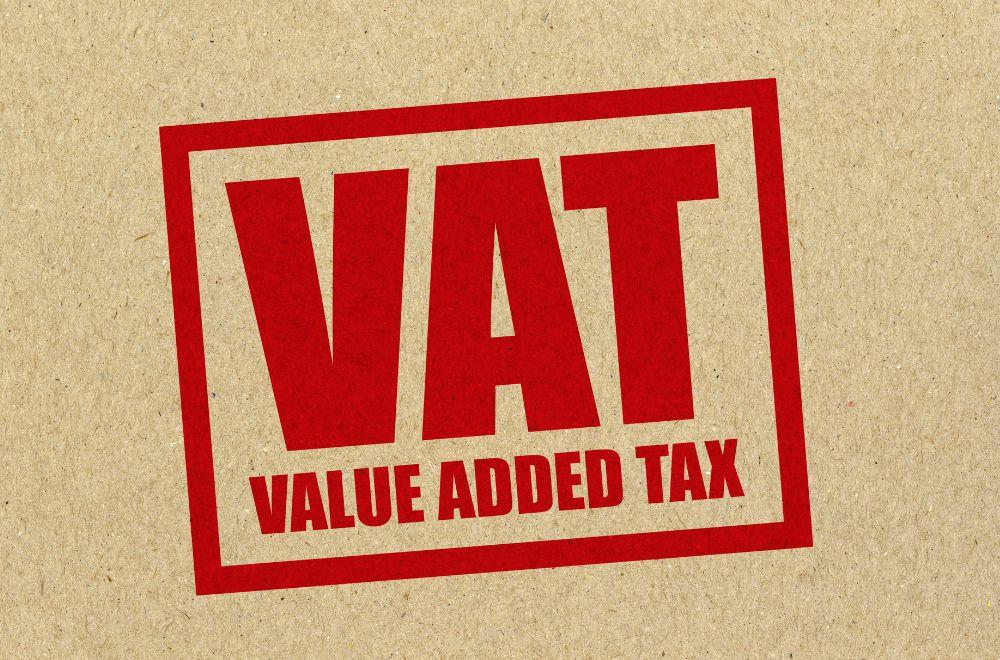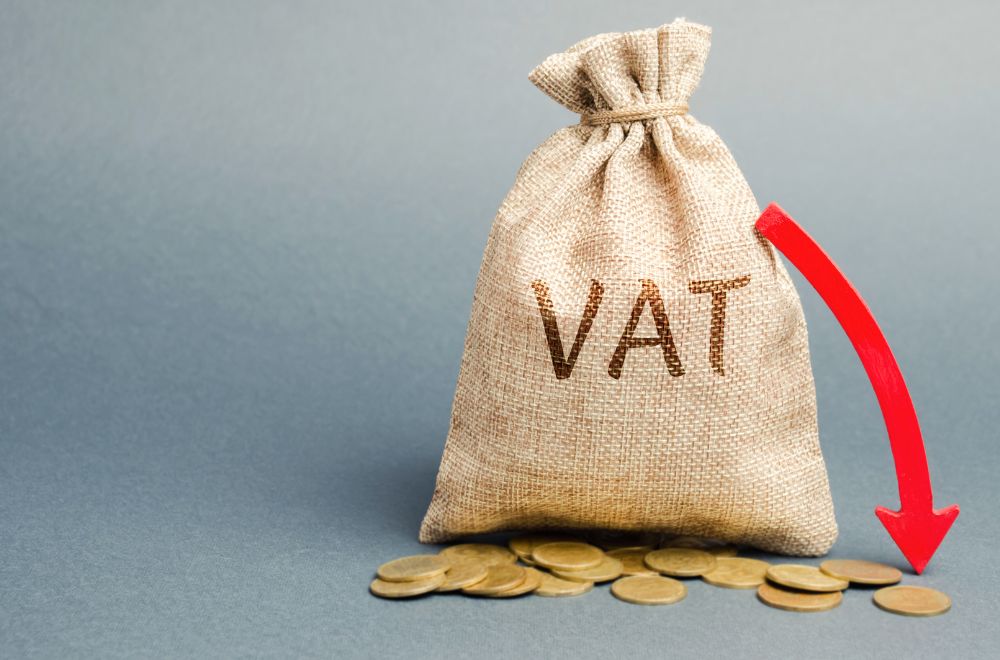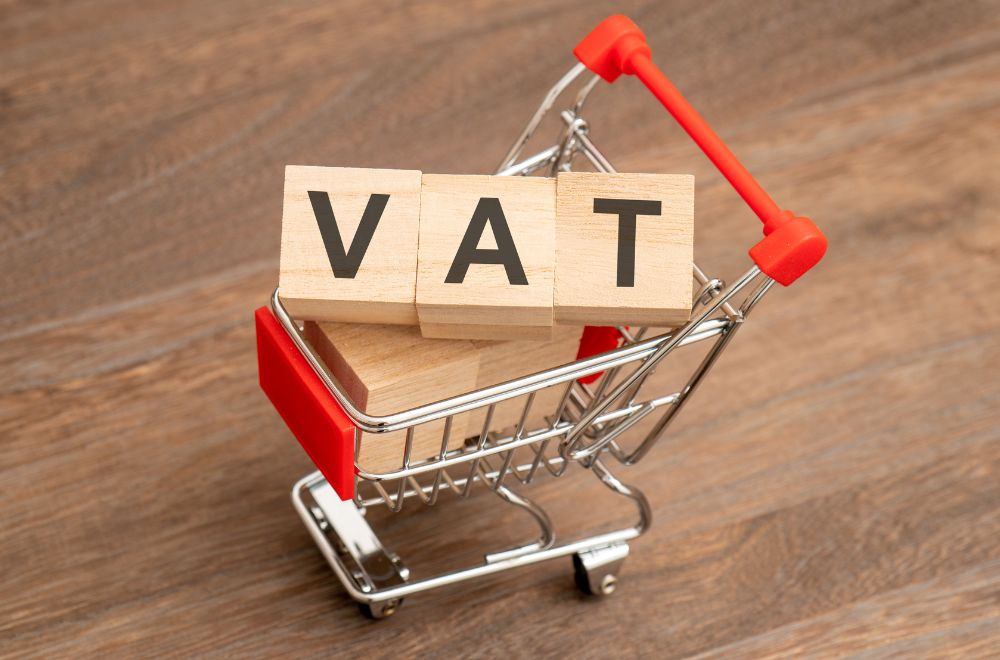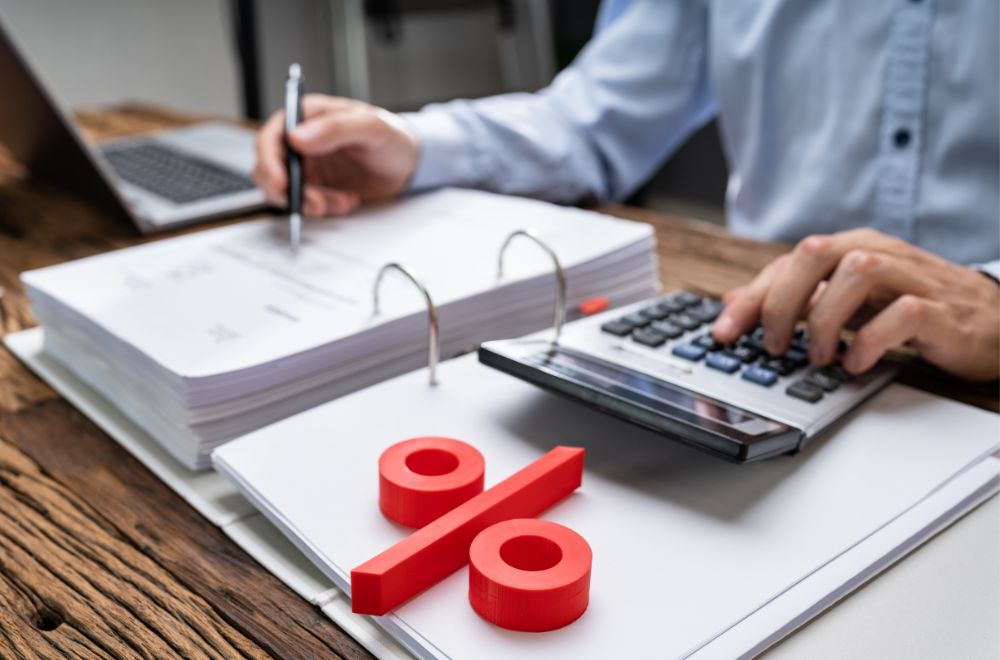Understanding the intricacies of VAT in the UAE is essential for businesses and individuals who engage in financial transactions within the Emirates. Since the introduction of VAT in 2018, navigating the tax system has become a crucial aspect of economic activity in the region. This guide provides a comprehensive overview, from the fundamental principles of VAT registration and compliance to calculating, filing, and obtaining refunds. Whether you’re a local business owner, a non-resident company, or a tourist seeking to reclaim VAT on purchases, the following sections will equip you with the knowledge to manage VAT-related matters efficiently and in accordance with UAE tax legislation.
Quick Answers About VAT In Dubai
Who Is Required to Pay VAT in Dubai?
If you’re running a business registered in the UAE, you’ll need to register for VAT if your annual turnover is over AED 375,000. It’s not just a formality; failing to comply with the mandatory registration threshold can hit you with penalties. If your turnover is between AED 187,500 and AED 375,000, you can register for VAT voluntarily.
This can be a smart move for start-ups that are spending money before they’ve started making it. Non-resident companies that provide taxable goods and supplies in the UAE have to register for VAT, too, no matter their turnover.
What is the VAT Rate in Dubai?
In Dubai, the standard VAT rate sits at 5%, and it applies to most goods and services. But there are exceptions. Some items are zero-rated, meaning they’re taxed at 0%. These include exports to non-GCC countries, international transport, newly built residential properties, certain educational and healthcare services, and some precious metals.
Then there are the VAT-exempt supplies, like certain financial services, residential properties, bare land, and local passenger transport. Remember, while zero-rated supplies count towards your VAT registration threshold, exempt supplies don’t.
Is VAT Refundable in Dubai?
Yes, you can get VAT back in Dubai under certain conditions. As a business, you can offset the VAT you pay on purchases against the VAT you charge your customers. If you’ve paid more VAT than you’ve collected, you can ask for the difference back.
Non-resident businesses in the UAE might also get a VAT refund on some expenses as long as they meet specific criteria. These include not being VAT-registered in the UAE, not having a business place in the UAE, and needing to be recognised by an authority in their home country. The refund comes with a minimum spend requirement. It isn’t available for expenses that UAE VAT registrants can’t recover or for businesses from countries not on the UAE’s Federal Tax Authority (FTA) list.
How to Calculate VAT in The UAE
Calculating VAT in the UAE is straightforward: your VAT payment is the output VAT minus the input VAT. To figure out the total price with VAT at the standard 5% rate, multiply the original price by 1.05. To work out the VAT amount from a total price, the formula is VAT amount = (Value inclusive of tax X tax rate) ÷ (100 + tax rate).
For businesses, getting your VAT calculations right is crucial for charging your customers accurately and for claiming any potential refunds on input VAT.
How to Claim VAT Refund in UAE
To claim a VAT refund in the UAE, registered businesses here must stick to a specific process. Resident companies must register for VAT first to reclaim the VAT their suppliers charge them. If their input VAT exceeds their output VAT, they can file for a refund of the excess with the FTA.
Eligible non-resident businesses must send a refund application to the FTA for VAT paid on qualifying expenses within the UAE. The claim needs to be backed up with original documents and meet the FTA’s stringent criteria. It’s wise to act quickly to make sure you fulfil all the conditions for a successful refund.
How to Register For VAT in the UAE
Determining VAT Eligibility for Businesses
Registering for VAT is essential for compliance with tax laws. Registration is mandatory if your business’s taxable supplies and imports exceed AED 375,000 annually. For non-resident companies making taxable supplies in the UAE without a responsible local entity, VAT registration is obligatory regardless of taxable supply and value. Conversely, registration is optional for businesses with supplies and imports above AED 187,500 per annum, allowing them to reclaim VAT on expenses.
Step-by-Step Guide to VAT Registration
The registration process is accessible via the EmaraTax platform. Begin by creating an account on the FTA’s website. After setting up your account, follow these steps:
- Log into your EmaraTax account dashboard and establish a new taxable person profile.
- Navigate to the ‘Value Added Tax’ section and select ‘Register’.
- Complete the registration form with all required details and documentation.
The submission should take about 45 minutes, and the FTA aims to complete the review within 20 business days after receiving your full application. Ensure you apply within 30 days of becoming liable for VAT registration.
Documentation and Information Requirements
For VAT registration, gather the following:
- A valid trade license or multiple licenses, if applicable.
- Identification documents for the business’s authorised signatories.
- Evidence of the signatories’ authorisation to represent the business.
- Contact information and a bank letter for account verification.
Additional documents may be necessary depending on your business activities and registration purpose, such as financial records, future revenue projections, ownership details, customs data, and documents related to any affiliations. All documents should be in standard formats and under 5MB in size.
Complete forms regarding your taxable supplies and expenses are also required, including turnover declaration templates and letters. Accuracy and currency of documentation are crucial to avoid delays or issues with your application.
After registration, your VAT certificate will be accessible on your e-Services account dashboard. Maintaining accurate records and fulfilling all VAT responsibilities is important to avoid penalties. Under certain conditions, you may consolidate your VAT and reclaim excess input VAT from the FTA by adhering to the prescribed procedures.
VAT Compliance for Businesses
Record-Keeping and Invoicing
To comply with the FTA’s regulations, businesses must maintain comprehensive records of all their transactions, including supplies and imports. These records should encompass all tax invoices, tax credit notes, and documents pertinent to procuring goods or services. Additionally, documentation for goods and services utilised for personal use must be kept, indicating the VAT paid. It is also necessary to retain records of purchases where input tax was not deducted and any adjustments made to accounts or tax invoices.
For transactions involving the Reverse Charge Mechanism, meticulous record-keeping is essential since the responsibility for VAT reporting shifts to the purchaser. When preparing tax filings, it is important to document the tax due on all supplies subject to the reverse charge, the recoverable tax for supplies or imports, and any adjustments made to these figures. Records should be systematically organised and contain comprehensive details such as the identities of customers or suppliers, descriptions of products or services, quantities, prices, tax types, taxable values, tax amounts, and VAT registration numbers.
Determining the emirate of the supply chain is based on the location of goods collection or service provision. If goods are transported, the destination emirate is considered. Otherwise, the supplier’s place of residence is taken into account.
Businesses are also obliged to maintain other financial documents, including balance sheets, profit and loss accounts, records of fixed assets, and inventory records at the end of each tax period. The standard duration for keeping these documents is five years, extending to ten years for capital assets and fifteen years for companies dealing in real estate.
Non-compliance with record-keeping requirements can result in substantial fines, starting at AED 10,000 for the first offence and escalating to AED 50,000 for subsequent violations.
Filing VAT Returns
Tax invoices must be issued for all taxable transactions, with all pertinent details clearly stated. Simplified tax invoices are permissible for smaller transactions when the recipient is not VAT registered or the transaction value is below the voluntary registration threshold of AED 10,000. Retail businesses with transactions under this threshold may also use simplified invoices, which require less information but must still include certain essential details.
Handling VAT Payment and Refunds
Accuracy is paramount when managing VAT payments and refunds. In the event of an error, a VAT voluntary disclosure form can be submitted to rectify the mistake and avoid penalties. Businesses must update their ERP and accounting systems to handle these requirements effectively.
Deregistration from VAT is an option for businesses whose taxable supplies fall below AED 187,500 over 12 months or if they cease to make taxable supplies.
Tourists and visitors can claim refunds on VAT for purchases made during their stay through an electronic system that connects registered retailers with all entry and exit points. To qualify for a refund, transactions must be validated within 90 days, and the tourist must meet certain criteria, including being over 18 and purchasing from a retailer participating in the ‘Tax Refund for Tourists’ scheme.
Refunds are processed at departure points, where tourists can receive 85% of the total VAT paid, less a handling fee, either in cash or as a credit to their card. However, refunds are only available for consumed goods or if the goods are present upon departure.
Impact of VAT on Different Sectors
The introduction of VAT in the UAE in 2018 marked a significant shift in the tax landscape for businesses operating within the country. With a standard rate typically at 5% and varying up to 50% for certain goods and services, VAT has wide-ranging implications across different sectors of the economy.
VAT Implications for Service Industries
Service industries in the UAE have had to adapt to VAT compliance, necessitating meticulous record-keeping of revenue, expenses, and the VAT collected or paid tax registered businesses. For these businesses, VAT is not an expense but a duty to collect the tax on behalf of the government.
A solid understanding of VAT regulations is crucial to ensure accurate filing and to avoid any negative impact on profitability. Service providers must be diligent in their documentation, as inaccuracies in claiming VAT can lead to a reduction in earnings. Consequently, service industries have been incentivised to enhance their operations, potentially leading to increased efficiency and productivity.
Import and Export Businesses under VAT
Given the UAE’s role as a global trading hub, businesses involved in import and export activities must navigate VAT regulations carefully. For exports, the UAE has implemented a zero-rated VAT policy for goods and services exported beyond the GCC territories, which includes international transportation and related supplies. This policy allows businesses to reclaim any VAT paid during the production and distribution process.
Conversely, importers must account for VAT on goods entering the UAE. The VAT paid on imports can often be reclaimed, provided the business is registered, and the goods are for business use.
Effects on Retail and E-commerce
The retail and e-commerce sectors have experienced a direct impact from the implementation of VAT. As these sectors deal primarily with the end consumer, the VAT cost is an indirect tax typically passed on to the customer at the point of sale. Retailers and e-commerce platforms must ensure their pricing strategies account for VAT and that their systems can handle the necessary calculations and record-keeping.
The requirement for detailed financial transaction records means that businesses in these sectors must maintain vigilant accounting practices to ensure compliance and facilitate accurate VAT returns. The introduction of VAT has also prompted a more structured approach to financial decision-making within these sectors, potentially reducing resource wastage and enhancing market competitiveness.
Many businesses have sought the expertise of VAT advisory firms, which have proliferated in response to the demand for specialised knowledge. These firms assist businesses in navigating the complexities of VAT compliance, helping to implement effective strategies and maintain adherence to the law. Consulting with a VAT services expert is advisable for businesses seeking to ensure legal conformity or those at risk of non-compliance. This ensures compliance and equips businesses to manage VAT-related matters with greater confidence and efficiency.
Navigating VAT Exemptions and Zero-Rating
Understanding Exempt Supplies
Certain goods and services in the UAE are not subject to VAT. Businesses dealing in these exempt items are not permitted to charge VAT to their customers. They are unable to recover any VAT incurred on their inputs.
Exempt supplies include specific financial services that lack a distinct fee, discount, or commission. The issuance or transfer of equity or debt securities and certain life insurance contracts are typical examples of exempt financial services.
Leasing residential buildings for more than six months or to tenants with an Emirates ID card is exempt from VAT. This exemption encompasses all residential accommodations that adhere to the defined criteria. Conversely, commercial accommodations are subject to the standard VAT rate.
Bare land, defined as land without any buildings or civil engineering works, is not subject to VAT. Additionally, local passenger transport services, excluding pleasure trips and international aircraft transport, are exempt.
Goods and Services Eligible for Zero-Rating
Zero-rating allows businesses to charge a 0% VAT rate on certain supplies while still being able to recover the VAT on related costs.
Eligible goods and services for zero-rating extend to exports of goods and services outside the GCC, international and intra-GCC transport, and supplies related to specific sea, air, and land vehicles. Investment-grade precious metals are also zero-rated.
Newly constructed residential properties, supplied for the first time within three years of completion, and certain educational and healthcare services and related goods are eligible for zero-rating. The oil sector and its derivatives may be zero-rated at the discretion of each member state.
Member states can apply zero-rating or exemptions to sectors such as education, healthcare, real estate, and local transport, allowing them to tailor VAT treatments to their economic contexts.
Strategies for VAT Planning and Savings
Effective VAT planning can lead to tax position optimisation and potential savings. Understanding the nuances of the UAE’s tax laws is essential for any tax planning strategy. It’s crucial to structure business operations to enhance tax efficiency, potentially through deductions, credits, and strategic timing of transactions.
Businesses with an annual turnover exceeding AED 375,000 are obligated to register and charge VAT at the standard rate unless their goods or services are zero-rated or exempt from general consumption tax. These entities are required to issue valid VAT invoices. They can claim input tax credits on VAT paid for business purposes.
Maintaining accurate records and retaining documentation is vital for compliance. Businesses should also be ready for FTA audits and inspections.
By engaging in tax-free shopping and validating their transactions, tourists and visitors can utilise the VAT refund system for eligible purchases made in the UAE. They can apply for a refund, subject to a processing fee, through an electronic system managed by Planet at departure points.
VAT Mastery: Your Competitive Edge
Navigating the complexities of VAT in the UAE can transform from a regulatory responsibility into a strategic asset for your business. With a firm grasp of VAT regulations, a meticulous approach to record-keeping, and a proactive stance on reclaiming input VAT, your company can stay ahead in the financial game.
Staying informed and compliant is not just about abiding by the rules – it’s about financial prudence and optimising your tax position. Whether you’re a local entity, a global trader, or a visitor seeking refunds, understanding the nuances of the UAE’s VAT laws empowers you to make sound financial decisions.
Engage with the tax system wisely, capitalise on available exemptions and zero rates, and let VAT be an integral part of your business’s success story in the UAE.



